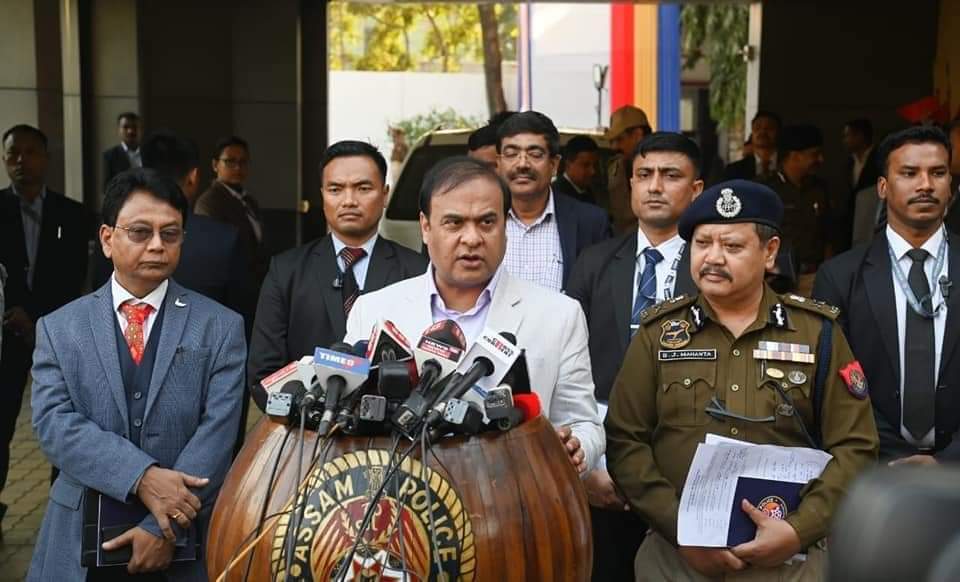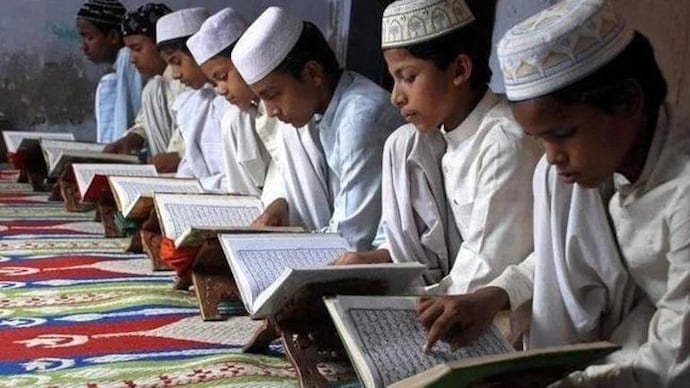Guwahati: All privately run small madrassas will be merged with nearby large madrassas in Assam to reduce the threat of radicalisation. This development has come up after several privately run madrassas were found involved in jihadi activities in the State. Director General of Assam police Bhaskar Jyoti Mahanta said this in Guwahati.
Himanta Biswa Sarma-led Assam Government has decided to merge small madrassas that are generally used to spread radicalism with larger ones to reduce the threat, DGP Mahanta informed.

The education department is conducting a survey with the help of Assam police to create a database of all such educational institutions in the State.
Assam, with a sizable Muslim population, is a “natural target” for radicalisation, and such activities are usually undertaken in small madrasas, Mahanta told in a press conference on January 17.
The State police have busted nine modules of terror outfits Ansarul Bangla Team (ABT) and Al-Qaeda in Indian Subcontinent (AQIS) and arrested 53 suspected terrorists last year, he said. Several of the arrested jihadis were teachers in privately run madrassas.
After the outfits were banned in Bangladesh and some of their top leaders were hanged following court orders in the neighbouring country, they shifted their base to Uttar Pradesh in India and their target is to trap vulnerable youth by radicalising them and they are targeting the Muslim youth in Assam, the DGP said.
DGP Mahanta said it was the Muslim leaders who approached the authorities to check these activities, and at a meeting with 68 community leaders, it was agreed to bring about educational reforms in madrasas. It has been decided that there will be only one madrasa within a periphery of three kilometres and those with 50 or fewer students will be merged with larger ones in the vicinity, he said. Besides teaching Arabic, the revised curriculum will follow modern educational trends, particularly on skill development.
Four streams of Islamic studies are followed in the State, and it was decided that a board, composed of members from each, will be formed, and the government will closely watch the education systems of these privately run madrassas.
A survey is going on to prepare a database of all madrassas, including land details, number of teachers, students and syllabus.
It was expected to be ready by January 25, the DGP said. All teachers of these madrassas will have to undergo police verification, and the Islamic leaders will also keep a watch on the teachers coming from outside the State.
“Superintendents of Police have been directed to keep a strict vigil, particularly in the minority-dominated Lower Assam districts, and the three districts of Barak Valley,” DGP Mahanta said.
Besides arresting 53 suspected terrorists, the State authorities have last year demolished three privately run madrasas where teachers were linked with jihadi elements and carried out the agenda of radicalising the youth. It should be mentioned that there are around 2500 privately run madrassas in the State. Most of these madrassas have very few students. After the decision to merge small madrassas with the larger ones, the numbers will be reduced. The Assam Government has already converted nearly 400 Government run madrassas into regular schools. Islamic organisations challenged the decision in Guwahati High Court, but the court ruled in favour of the Assam Government.




















Comments